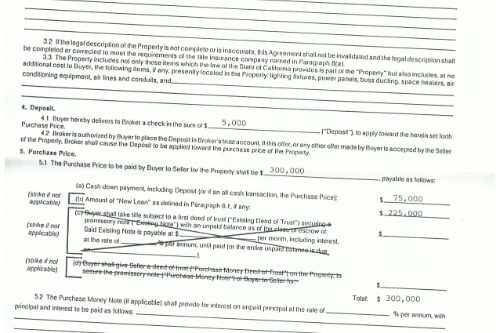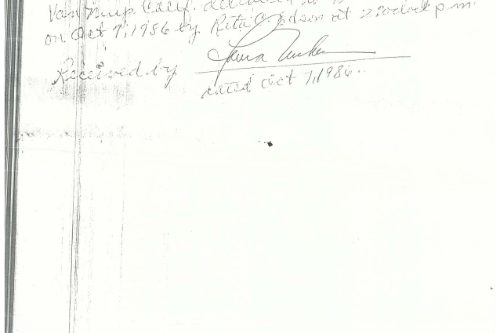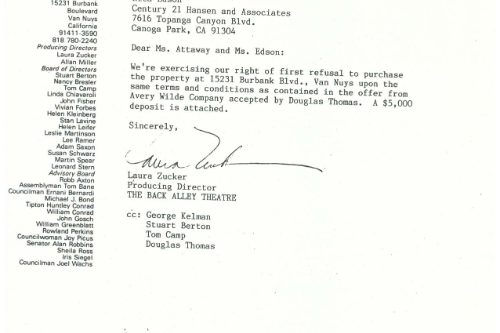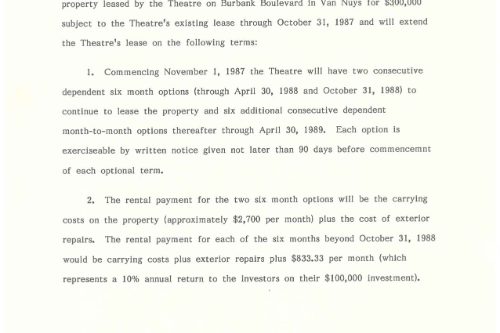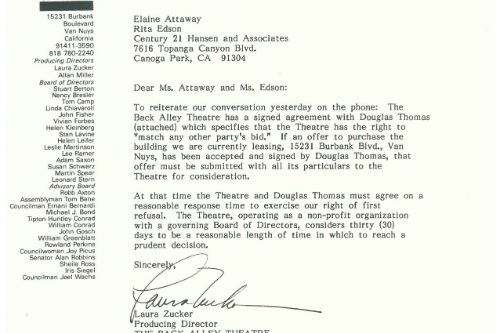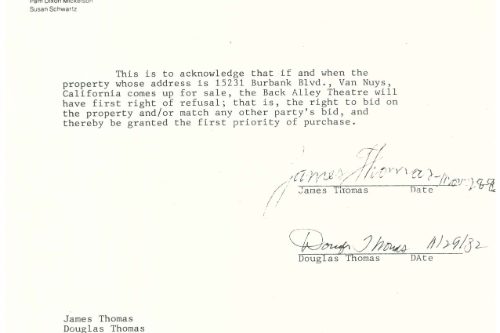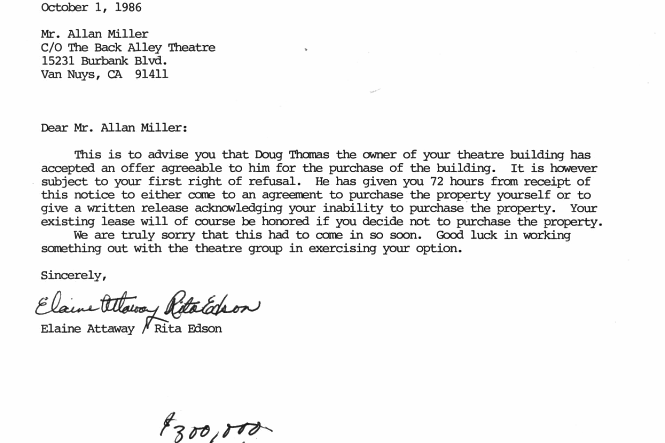Introduction
There’s no getting around it: the state of the performing arts is tied up inextricably with real estate.
Starting in 1979, the Back Alley Theatre rented first the back portion, and then the whole 13,000 sq ft warehouse on Burbank Blvd near Sepulveda. Allan was always on good terms with our elderly landlord, and had the amazing foresight to add an addendum to the lease that said that if the property came up for sale, the Back Alley would have first right of refusal to match any other party’s bid.
In 1986, at the height of our activities, a letter was hand delivered by two real estate brokers from Century 21 telling us that the building’s owner had accepted an offer to buy the building for $300K and that we had 72 hours to either purchase the property ourselves or to provide a written release.
The next day, on the advice of the great pro bono attorneys on our board, we sent back a letter saying they needed to give us a copy of the offer and that, since no timeframe was mentioned in the original agreement, we considered thirty days to be a reasonable length of time to reach a prudent decision.
Shortly after that, Allan, I, and other members of the board formed a limited liability company and made an offer to buy the building. Three weeks to the day, we let the brokers know we were exercising our right—boy, were they surprised– and the investors signed a new lease agreement with the nonprofit that was the Back Alley, allowing the theatre to continue in the building.
Two years later, our neighbor on Burbank Blvd. made an unbeatable offer to the investors (us) to buy the building at a considerable return on our investment. I had no idea when the mishigas started it would be the best investment we’d ever make. We were ready then to either move into a mid-size theatre or call it quits. So, we knowingly built a self-destruct button into what would happen to the Back Alley. We accepted the offer with a year lease-back, saying to ourselves that we were either going big or getting out.
The LA theatre community knows I think Actors Equity is the primary reason almost no smaller theatre has successfully made the leap to a mid-size house (East West and A Noise Within are the only exceptions). For decades, Equity has locked small theatres into spaces that can’t accommodate more than 99 seats because of their fear of not being able to police the unauthorized addition of seats. They should have required all small theatres to be in potentially expandable spaces. That would have allowed for the progressive addition of seating capacity, and Equity could have worked with theatres to provide incremental payment tiers to allow growth over time. I tried to get Equity to address this systemic barrier when I headed the negotiations on behalf of all the theatres during the waiver wars, but couldn’t get them to go there then…or later.
And that’s what created the countdown to closure.
–Laura Zucker


